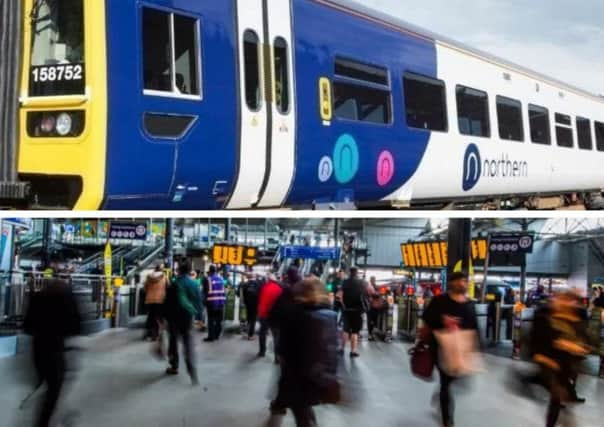Chris Grayling's department criticised in damning timetabling chaos inquiry


Professor Stephen Glaister’s report found that “nobody took charge” of the introduction of new timetables on May 20, which caused unprecedented delays and cancellations for passengers in the North.
In a damning indictment of the entire industry, the report said the DfT, Northern rail, Network Rail, the Office for Rail and Road regulator, and Govia Thameslink Railway, which experienced similar problems in the south-east, all made mistakes which contributed to the collapse of services.
Advertisement
Hide AdAdvertisement
Hide AdDuring the disruption, up to 310 planned services a day on Northern network did not run, causing “a significant financial and emotional cost to those passengers affected, directly impacting upon their work and families and in some circumstances their personal safety”, the report said.
“This has undermined the trust in the railway and the reliance they place upon it in their lives,” added Professor Glaister.
Among a series of failings, the report traces the root of the problems back to autumn 2017, when Network Rail “worsened” problems caused by delays to completing electrification work near Bolton by wrongly believing it could make up the time over Christmas.
At around the same time, the DfT agreed to phase the introduction of the Thameslink timetable, stretching resources at Network Rail’s timetabling department.
Advertisement
Hide AdAdvertisement
Hide Ad“The industry, as a whole, failed to foresee that these combined factors created a serious risk that the revised timetable could fail,” the report said.
The DfT then failed to sufficiently question the industry about the risks of the timetabling process, the report said.
Network Rail’s timetabling department was best placed to understand the risks but “did not take sufficient action”.
And neither GTR nor Northern were properly aware of or prepared for the problems in delivering the timetable and did not do enough to provide accurate information to passengers when disruption occurred.
Advertisement
Hide AdAdvertisement
Hide AdProfessor Glaister said: ““Central to the issues were that good intentions and over-optimism within the rail industry about its ability to recover missed deadlines left no time to uncover and fix problems. When problems arose, timetable planners were stretched and train operators were ill-equipped to help passengers.”
A DfT spokesman said: “We welcome these findings and are working with the industry to ensure that such disruption never happens again.”
Network Rail chief executive Andrew Haines said the operator was moving towards a “whole system approach” for timetabling”.
He said: “I’d like to add my sincerest apologies to passenger for letting them down.”